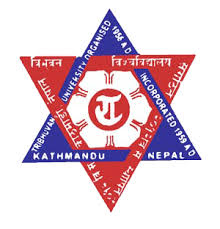Overview
BFA in Classical Music/Dance at Sirjana College of Fine Arts (SCoFA), Tribhuvan University
The BFA in Classical Music/Dance at SCoFA functions under Tribhuvan University and focuses on theory, performance, and stage practice. You build technique through graded repertoire, rhythm cycles, notation, choreography basics, and cultural studies.
Highlights
-
Four-year performance-oriented structure with rehearsals and juried showings.
-
Study of raga/ragini, tala, composition, choreography elements, and stagecraft.
-
History and aesthetics courses that anchor practice in South Asian and Nepali traditions.
-
Semester-end performances or juries tied to course outcomes.
Curriculum Details
Year 1 introduces ear training, rhythm counting, movement vocabulary, posture, breathing, and notation. Students learn basic compositions and short pieces suitable for internal showings.
Years 2–3 extend to intermediate repertoire, improvisational boundaries, and collaborative work. Music students cover bandish, alaap, and tempo changes across rhythm cycles; Dance students practice abhinaya, nritta, and group formations. Ensemble work improves listening, timing, and stage coordination.
Year 4 focuses on advanced repertoire, recital planning, and documentation. A final performance or capstone demonstrates technical growth and interpretive depth. Nepal Studies and History of Arts & Aesthetics provide cultural grounding for the final reflection and viva.
Objectives
-
Build reliable technique and accurate pitch/rhythm or movement timing.
-
Develop interpretive choices supported by theory and tradition.
-
Prepare students for solo and ensemble settings on formal stages.
-
Document practice through notes, recordings, and reflective writing.
Scope
Graduates participate in concerts, festivals, cultural institutions, schools, and academies. Some move into choreography assistance, arts administration, or research roles. Others pursue postgraduate study or teacher training.
Learning Outcomes
-
Present a structured recital or choreography piece that meets course standards.
-
Demonstrate control over tempo, dynamics, phrasing, or movement clarity.
-
Explain stylistic choices using theory and history.
-
Collaborate effectively in ensembles and group works.
Skill Development Modules
-
Daily riyaz or movement drills; breathing and stamina routines.
-
Repertoire labs; tala practice with manual or digital lehera/tabla support.
-
Stagecraft: microphone technique, costume planning, cue sheets, and rehearsal logs.
-
Music literacy or notation; choreography planning and documentation.
Teaching Methodology
Classes combine demonstrations, guided practice, and peer feedback. Faculty schedule rehearsals and short showings each term. External artists may conduct focused workshops. Assessment includes practical juries, theory papers, and recital evaluation as per TU rules.
Admission Requirements
-
Eligibility: +2 or equivalent accepted by TU.
-
Process: Application, document check, and audition/interaction. The audition typically observes pitch sense or movement clarity, coordination, and recall.
Career Opportunities
-
Performer, instructor, accompanist, rehearsal assistant, school/college faculty member, cultural event coordinator, or researcher.
-
Further study in musicology, dance studies, or pedagogy.
Scholarships and Financial Aid
Departmental recognitions and college awards support high performance. Students should enquire during admission for current scholarships and criteria.
Why Choose This Course?
The program treats performance as disciplined daily work and public sharing. You rehearse, present, and receive feedback in cycles that mirror professional stages. A final recital helps you enter the field with confidence and documentation.
Conclusion
The BFA in Classical Music/Dance at SCoFA blends structured training with stage practice under TU. Students gain technique, interpretive insight, and presentation skills suitable for careers in teaching, performance, and community arts.


















